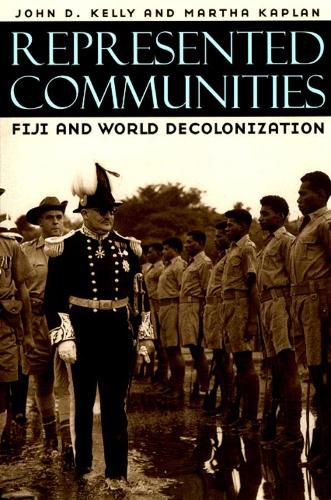Readings Newsletter
Become a Readings Member to make your shopping experience even easier.
Sign in or sign up for free!
You’re not far away from qualifying for FREE standard shipping within Australia
You’ve qualified for FREE standard shipping within Australia
The cart is loading…






In 1983 Benedict Anderson’s Imagined Communities revolutionized the anthropology of nationalism. Anderson argued that print capitalism fostered nations as imagined communities in a modular form that became the culture of modernity.
Now, in Represented Communities, John D. Kelly and Martha Kaplan offer an extensive and devastating critique of Anderson’s depictions of colonial history, his comparative method, and his political anthropology. The authors build a forceful argument around events in Fiji from World War II to the 2000 coups, showing how focus on imagined communities underestimates colonial history and obscures the struggle over legal rights and political representation in postcolonial nation-states. They show that the self-determining nation-state actually emerged with the postwar construction of the United Nations, fundamentally changing the politics of representation.
Sophisticated and impassioned, this book will further anthropology’s contribution to the understanding of contemporary nationalisms.
$9.00 standard shipping within Australia
FREE standard shipping within Australia for orders over $100.00
Express & International shipping calculated at checkout
In 1983 Benedict Anderson’s Imagined Communities revolutionized the anthropology of nationalism. Anderson argued that print capitalism fostered nations as imagined communities in a modular form that became the culture of modernity.
Now, in Represented Communities, John D. Kelly and Martha Kaplan offer an extensive and devastating critique of Anderson’s depictions of colonial history, his comparative method, and his political anthropology. The authors build a forceful argument around events in Fiji from World War II to the 2000 coups, showing how focus on imagined communities underestimates colonial history and obscures the struggle over legal rights and political representation in postcolonial nation-states. They show that the self-determining nation-state actually emerged with the postwar construction of the United Nations, fundamentally changing the politics of representation.
Sophisticated and impassioned, this book will further anthropology’s contribution to the understanding of contemporary nationalisms.